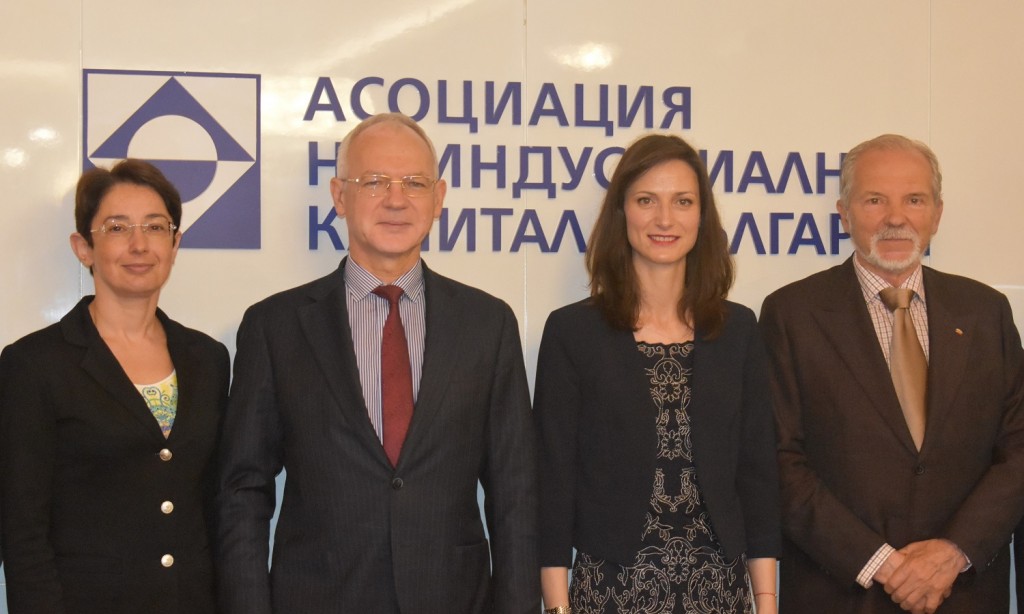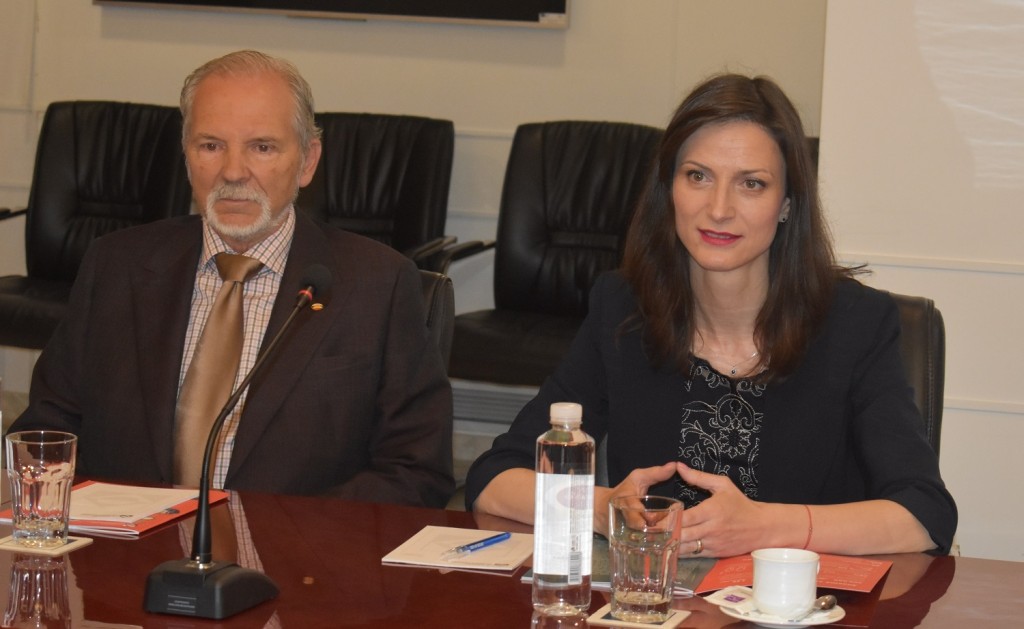BICA AND EUROPEAN CANDIDATE MARIYA GABRIEL DISCUSS “10-point PLAN FOR COMPETITIVE SUSTAINABLE SOCIAL EUROPE INDUSTRY”

24Bulgarian Industrial Capital Association (BICA) and MEP’s Maria Gabriel discussed the “10-point Plan for a Competitive Industry for a Sustainable Social Europe”. The document was prepared by the European sectoral employers’ organization CEEMET, which employs 49% of EU manufacturing workers. In early March, BICA General Assembly fully endorsed the Plan’s findings and proposals.
“For voters, the position of the 10-point MP candidates will certainly be a very important guide in deciding who to vote for. The European industry – metalworking, mechanical engineering, electronics, ICT and related technologies – depends on the overall presentation of the overall EU economy. We all want a significant increase in funding for education, better healthcare and higher pensions. The point is that in order to earmark these funds, we have to devise them. And that means first and foremost increasing productivity with the combined efforts of managers, employers and workers, “said BICA Chairman Vasil Velev.
Mr. Velev stressed that the European social model can only be supported by a globally competitive European industry and recalled that although 7% of the world population lives in Europe and generates 22% of world GDP, the 28 countries, member states account for 40% of the world’s social spending. He urged urgent measures to tackle the European labor force shortage by targeting young people with education and qualifications in the sciences, mathematics, engineering, digital technology and making vocational education and training the most preferred choice , including through European Mathematics Mathematics and European scholarships for scarce professions.
BICA has been alarming for years about the growing problem of human resources shortage and has been working systematically to bring the admission plan in Bulgaria in line with the labor market demand, as well as to increase the attractiveness of professions of key importance for Bulgaria’s competitiveness. and preventing the leakage of specialists abroad. However, these crucial reforms will only come to fruition in a few years. On the other hand, the demographic picture and trends make it clear that the only realistic approach to dealing with the deficit is the recruitment of third parties. For this purpose, the so-called Bulgarian card / instead of European Blue Card /, which entitles you to stay and work in the country for a period of 5 years. He also emphasized the need for specific solutions to address the shortage of staff in Bulgaria by facilitating the issuance of residence and work permits in the country through bilateral agreements with third countries and a more flexible labor market.
The current Commissioner has expressed his full support on most of the points in the Plan. In the words of Maryia Gabriel, it is of the utmost importance that the EU restart work on re-industrializing Europe so that it can keep up and compete with the US, China, Russia and India. She also called for less regulation at EU level, saying she would work to create more regulations and fewer directives.
According to the employer organization, consultation with industry should become a natural reflex of politicians at all levels and serve to find solutions to the problems of the real economy and its companies. This will ensure that they are fit for global competition and provide quality jobs, funding social Europe. Particular attention was also given to the need to encourage SMEs and to implement specific support measures, especially with regard to access to finance and to meet the challenges of digitalisation. The AICB has requested support for changing the definition of small and medium-sized enterprises at European level to meet the new economic realities. Because of this definition, SMEs are often outside the scope of European programs, with more than 500 enterprises important to our country being harmed in Bulgaria alone.
BICA has asked future MEPs to work with social partners to better invest European funds from the next Multi Annual Financial Framework, which will focus on initiatives to acquire the right skills in new labor market conditions and business requirements. They insisted on taking into account the views of business and social partners when setting funding priorities and formulating and implementing important policies through joint actions by social partners.
During the talks, special emphasis was placed on our country’s membership of the OECD. As EC Special Representative in the G20, Maria Gabriel has committed to lobbying the representatives of the twenty most developed countries.
The meeting also discussed the possibility of setting up a European Labor Office office in Bulgaria, EU financial instruments such as InvestEU and Horizon Europe, free trade, education and digitalization.

 English
English

